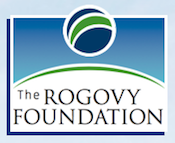
Strives above all to be fair in our investigations and reporting. We are diligent in our research. And we give credit where credit is due — to members of both parties — when good things happen.
POGO will never allow the pillars of our democracy to be threatened. For more than three decades, we’ve questioned any ties to public officials that suggest conflicts of interest, corruption, or general wrongdoing. We fight back against attacks to government accountability, ethics, or transparency.
Founded in 1981, POGO originally worked to expose outrageously overpriced military spending on items such as a $7,600 coffee maker and a $435 hammer. In 1990, after many successes reforming military spending, including a Pentagon spending freeze at the height of the Cold War, POGO decided to expand its mandate and investigate waste, fraud, and abuse throughout the federal government.
Throughout its history, POGO’s work has been applauded by Members of Congress from both sides of the aisle, federal workers and whistleblowers, other nonprofits, and the media.
While some groups are staffed with scientists or experts who focus on a single issue, POGO is an investigative organization with an expertise for working with sources inside the government and whistle-blowers to document evidence of corruption, waste, fraud, or abuse. Many of our nation’s most dedicated citizens work in and around the federal government. When they come across information revealing serious misconduct, they rightfully believe that they would risk losing their job if they came forward and “blew the whistle” on the wrongdoing they see. According to government surveys, one out of every 14 federal employees reported being retaliated against in a two-year period for making disclosures concerning health and safety dangers; unlawful behavior; and/or fraud, waste, and abuse.
POGO’s investigators and journalists take leads and information from insiders and verify the information through investigations using the Freedom Of Information Act, interviews, and other fact-finding strategies. We then disseminate our findings to the media, Congress, and public interest groups through alerts, statements, studies, and journalistic reports.

